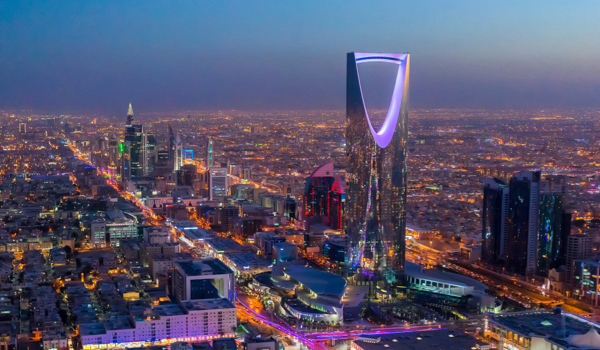


RIYADH - Vision 2030 is Saudi Arabia’s radical and ambitious plan to transform both its economy and the lives of its people. Its leaders have identified artificial intelligence (AI) as a vital tool to help enable this transformation, so they have set themselves the goal of becoming one of the world’s top 10 developers of AI systems by the end of the current decade.
As things stand now, the country is making remarkable progress with both AI and the overall transformation, but these efforts have largely gone unnoticed - at least in the West.
For reasons that will be covered later in this article, the global AI summit that was recently held in Riyadh received very little coverage in Western media, despite its considerable size and significance, with 4,000 delegates gathered in the strikingly opulent Ritz Carlton Hotel, which was built in 2011 as a palace for hosting diplomats. Partnerships were announced with a range of organizations, most notably a digital development partnership with the World Bank. Meanwhile, Saudi Aramco - the world’s second-largest company - announced the creation of a Global AI Corridor, which will include an academy, a startup incubator, and research and development labs.
The kingdom’s bid for a leadership role in global AI is being led by the Saudi Data and AI Authority (SDAIA), which was established in 2019 and is chaired by Mohammed bin Salman, the country’s crown prince and de facto ruler, who is universally known as MBS. No other country has an AI governing body chaired by its head of state. The SDAIA sets the national strategy, which is then executed by three other bodies: the National Data Management Office and the National Center for AI - which were established at the same time as the SDAIA - and the National Information Center, which pre-dates them. The National Center for AI has often been described as Saudi Arabia’s nascent version of Google’s Deep Mind, and it is busy training and recruiti
The content herein is subject to copyright by The Yuan. All rights reserved. The content of the services is owned or licensed to The Yuan. Such content from The Yuan may be shared and reprinted but must clearly identify The Yuan as its original source. Content from a third-party copyright holder identified in the copyright notice contained in such third party’s content appearing in The Yuan must likewise be clearly labeled as such. Continue with Linkedin
Continue with Linkedin
 Continue with Google
Continue with Google










 2096 views
2096 views







